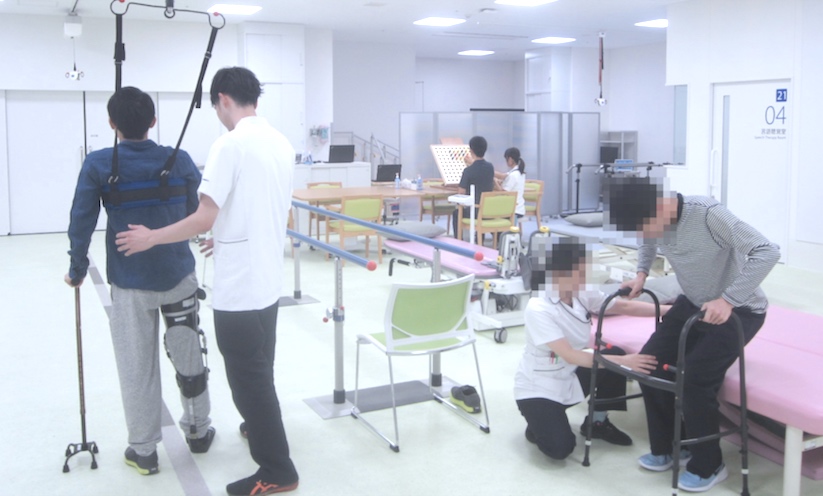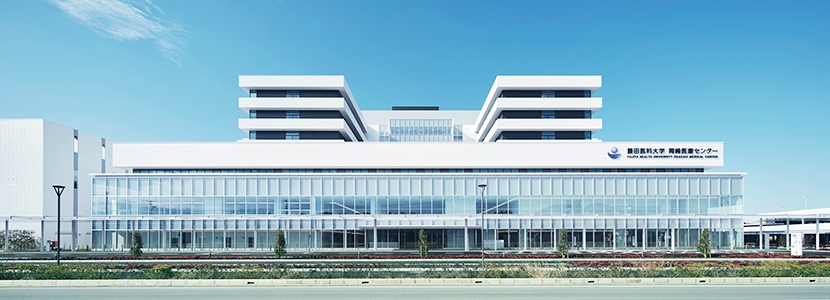Fujita Health University Okazaki Medical Center is a 400-bed acute care hospital that opened in Okazaki, Aichi prefecture on April 7, 2020, with a mission to provide emergency medical service 24 hours a day, 365 days a year, and advanced medical care including minimally invasive surgery and advanced cancer treatment. Following the acute phase of treatment, the optimal subacute and chronic care are also important; therefore, we aim to build a comprehensive community-based medical care system together with local clinics, home nursing stations, and nursing care facilities.
 Okazaki Medical Center Rehabilitation Center
Okazaki Medical Center Rehabilitation Center
Team work
As of July 2020, the Rehabilitation Division has 13 physical therapists, nine occupational therapists, and three speech therapists apart from two physiatrists. To be able to respond to emergency medical services and various cancer treatments, we mainly provide acute rehabilitation services, perioperative rehabilitation, and a wide range of rehabilitative care for varieties of diseases such as cerebrovascular disorders, orthopedic diseases, respiratory diseases, and cardiovascular diseases.
We work closely with other medical departments to help hospitalized patients to return immediately to their life in community. We hold regular conferences with doctors and nurses from the departments of neurology, neurosurgery, orthopedics, general medicine, and cardiology. In the intensive care unit, where patients are admitted after surgery, conferences are held every day from Monday to Saturday with the doctors and nurses in charge to make appropriate rehabilitation plans.
Dysphagia, which is often seen in patients with cerebrovascular diseases and older patients, is a disorder that needs transdisciplinary team approach. In addition to rehabilitation, dysphagia requires a variety of other management strategies, such as adjustment of the patient's dentures, oral care, modification of meal contents, and appropriate assistance. At our hospital, a transdisciplinary team including dentists, certified nurses for dysphagia, dental hygienists, and dietitians evaluate the patients through video endoscopy and videofluorography and share the information to the attending physician and ward nurses.
We would like to actively support patients' community life from the perspective of rehabilitation medicine, not only within the hospital, but also in cooperation with other medical institutions, facilities, local governments, and community residents.


